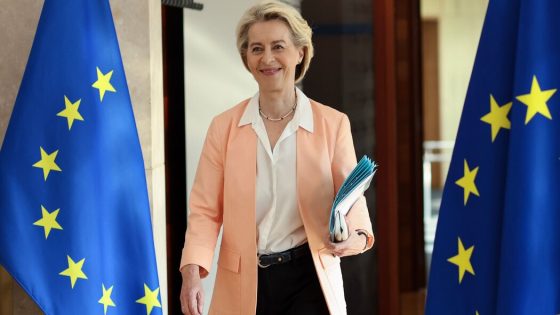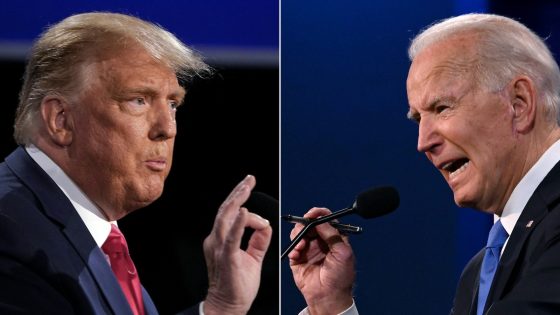European Union leaders on Thursday picked three senior politicians to head up the bloc’s institutions for the next five years, signaling commitment to Ukraine and a need for stability amid electoral upsets in Europe and, potentially, the United States.
At a summit in Brussels, the heads of the 27 E.U. member governments agreed to put forward Ursula von der Leyen, a German conservative, for a second term at the helm of the powerful European Commission, the bloc’s executive branch.
António Costa, a Socialist and until recently the prime minister of Portugal, was selected as the president of the European Council, which includes those 27 heads of government, balancing Ms. von der Leyen’s political and geographical background.
And Prime Minister Kaja Kallas of Estonia, a hawk on Russia, was the official chosen to become the bloc’s top diplomat.
The selection of these three senior politicians, who all have solid working relationships with one another, is an effort by leaders in the European Union to place relatively centrist figures at the heads of the key institutions despite the ascent of harder-right political leaders, such as Giorgia Meloni in Italy, as well as ultranationalist, nativist parties, like Marine Le Pen’s National Rally in France.
The reappointment of Ms. von der Leyen will face a serious test at the European Parliament, the bloc’s only elected institution, where she will need to lobby to earn a majority in the 720-seat assembly, in a secret ballot set to take place in mid-July. She belongs to a center-right grouping that is the largest in the Parliament, but far short of a majority.
European Commission: a Second Term
Ms. von der Leyen, 65, has come into her own as an unexpected wartime leader for the European Union in her role as president of the European Commission since 2019, gaining broader prominence on the global stage than she ever had in her career as a German politician.
Often referred to by her initials, “V.D.L.,” in political circles, Ms. von der Leyen became a household name in the European Union after she led a response on behalf of member states to the coronavirus pandemic — including the joint purchasing of vaccines and an economic stimulus program funded by jointly issued debt, both firsts.
Her steadfast support for Ukraine in its war against Russia has been her more recent trademark policy. She has used the commission’s resources to press for funding for arms and reconstruction for Ukraine, as well as pushing for the country to one day join the European Union.
Deeply supportive of strong European ties with the United States, Ms. von der Leyen has quickly become among the most trusted leaders in Europe for President Biden and his administration. This close alliance has been particularly on display in advancing major sanctions against Russia after its full-scale invasion of Ukraine in February 2022.
E.U. leaders, who nominate these top officials, signaled that despite some criticisms, they were happy with how Ms. von der Leyen had managed to gear the commission’s dozens of thousands of expert staff members and resources to buttress the bloc’s response to major crises over the past five years.
Ms. von der Leyen, a workaholic who practically lives in a studio in her office on the 13th floor of the European Commission, has been criticized as being a micromanager, alienating some senior commission staff. More recently, her seemingly uncritical support of Israel in its war in Gaza has been criticized by some for not being representative of the overall European Union position. Some have also said she is not open enough with the news media and the broader public.
The New York Times has sued the commission in a freedom of information case, seeking the release of messages exchanged between her and the chief executive of Pfizer, Albert Bourla, during the negotiation of the E.U. Covid-19 vaccine contracts. The exact terms and costs of the multibillion-dollar procurement, the bloc’s largest ever, remain secret.
European Council: Friends Across the Aisle
Mr. Costa, 62, the Socialist former prime minister of Portugal, was selected as president of the European Council. The council is the institution that convenes the national governments of the member states and parses their preferences.
The job entails some tricky diplomacy, as the council president is tasked with coordinating and leading negotiations among the 27 leaders who come from different political backgrounds and primarily advocate their own countries’ narrow interests. Mr. Costa will replace Charles Michel, a Belgian politician. Mr. Costa’s term of two and a half years can be renewed once.
Mr. Costa’s appointment is a nod to the second-largest political group in the European Parliament, the Socialists and Democrats. He has a good relationship with Ms. von der Leyen, with whom he worked in his capacity as Portugal’s prime minister during her first term.
With this appointment, Mr. Costa, who has Mozambican and Indian ancestry, will become the first person of color to occupy a top European Union office.
He has been in trouble at home, after accusations of corruption that ensnared his chief of staff last year, but he has not been personally charged with any wrongdoing. He resigned from his role pre-emptively after those accusations emerged in November 2023.
Top Diplomat: Baltic Bolt
The leaders also picked Ms. Kallas, the Estonian prime minister, to become the bloc’s top diplomat and succeed Josep Borrell Fontelles.
Mr. Borrell, a Spanish Socialist, has a reputation for outspokenness, which proved to be both an asset and a liability, depending on the point of view, throughout his tenure.
He has repeatedly voiced support for setting up a Palestinian state, and criticized Israel for the manner in which it is conducting its war against Hamas.
But he also raised eyebrows because of comments describing Europe as being “a garden” and juxtaposing it to the other parts of the world, which he called “a jungle.” The remarks, made while Europe was struggling to rally global support for Ukraine partly because of the long shadow of colonialism, prompted accusations of neocolonialism and racism.
Selecting Ms. Kallas, who will have to resign from her job as prime minister to take the new role, will serve as a strong signal to Russia. Ms. Kallas, 47, is a fierce critic of the Kremlin and one of the most outspoken pro-Ukrainian voices in the bloc.
While the European Union is not a major diplomatic force, with its individual member governments preferring to keep control of their own foreign policy instead of assigning it to a collective center, its position on Russia matters. The bloc at a collective level also controls an important set of sanctions on a number of countries around the world, including Iran and Russia.
Aurelien Breeden contributed reporting from Paris, and Monika Pronczuk from Brussels.
Source Agencies



